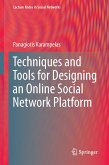This work addresses the gap in the current collective action literature exposed by the new Information and Communication Technologies (ICTs) landscape by bringing together qualitative and quantitative studies from computational and social sciences. The book offers a rigorous and systematic investigation of both methodological and theoretical underpinnings and, thus, collectively promotes a symbiotic and synergistic advancement of the multiple interconnected disciplines in studying online collective actions. More specifically, the book is intended to illuminate several fundamental and powerful yet theoretically undeveloped and largely unexplored aspects of collective action in the participatory media (e.g., social media). Through in-depth exploration of relevant concepts, theories, methodologies, applications, and case studies, the reader will gain an advanced understanding of collective action with the advent of the new generation of ICTs enabled by social media and the Internet.The developed theories will be valuable and comprehensive references for those interested in examining the role of ICTs not only in collective action but also in decision and policy making, understanding the dynamics of interaction, collaboration, cooperation, communication, as well as information flow and propagation, and social network research for years to come. Further, the book also serves as an extensive repository of data sets and tools that can be used by researchers leading to a deeper and more fundamental understanding of the dynamics of the crowd in online collective actions.
Bitte wählen Sie Ihr Anliegen aus.
Rechnungen
Retourenschein anfordern
Bestellstatus
Storno








